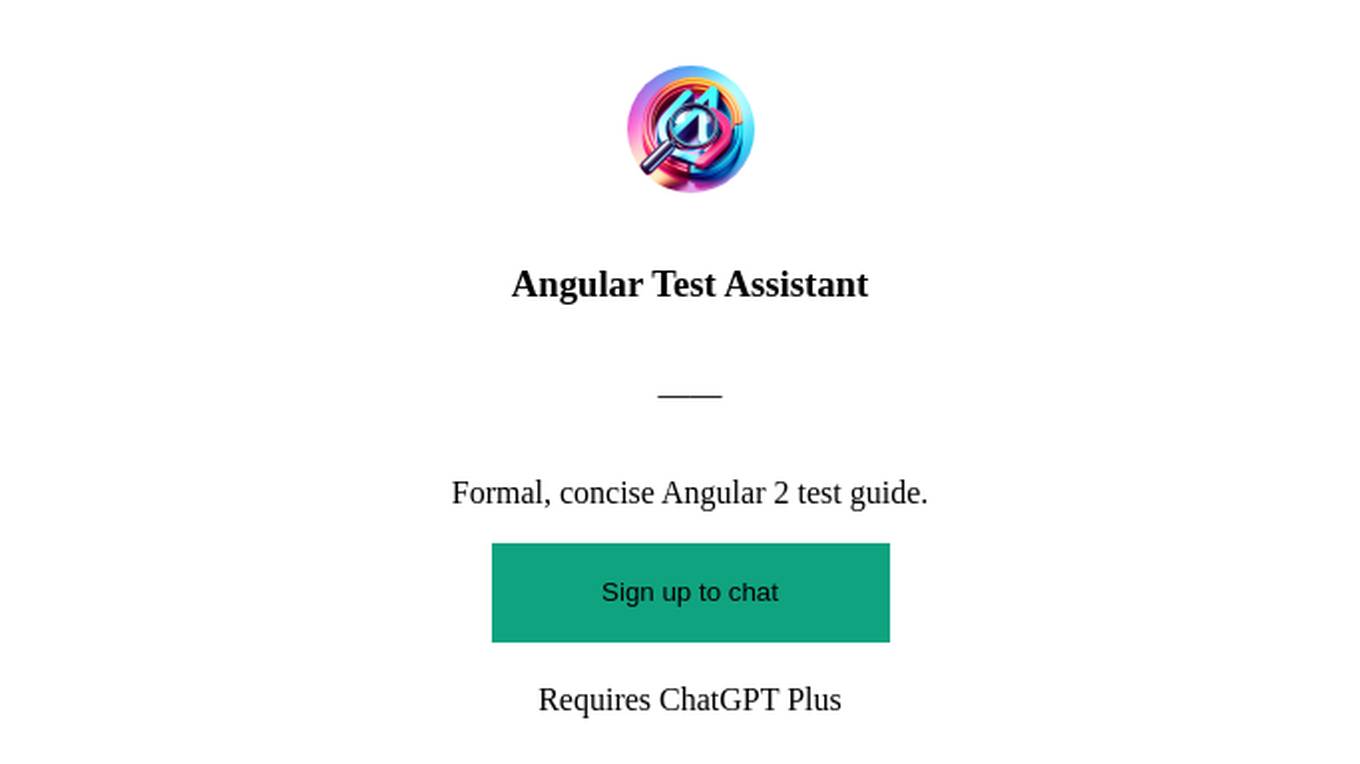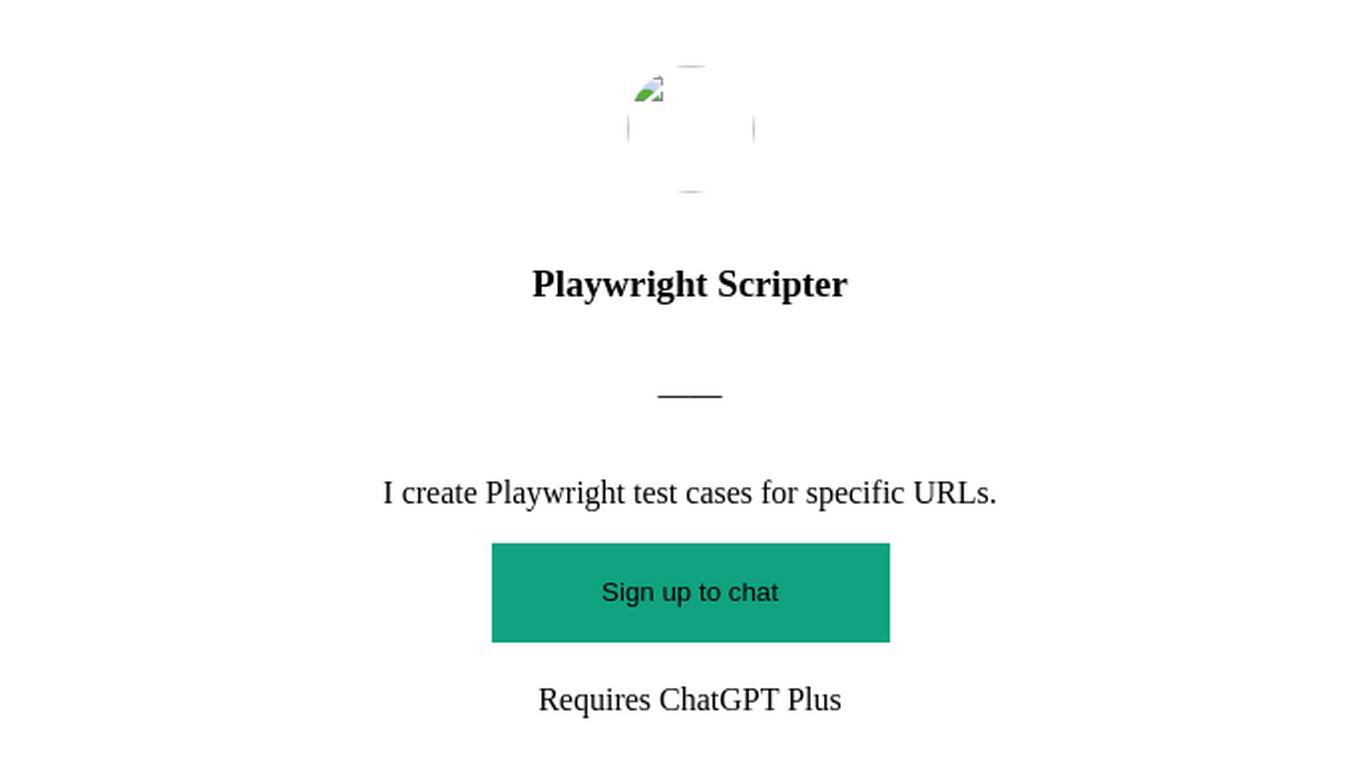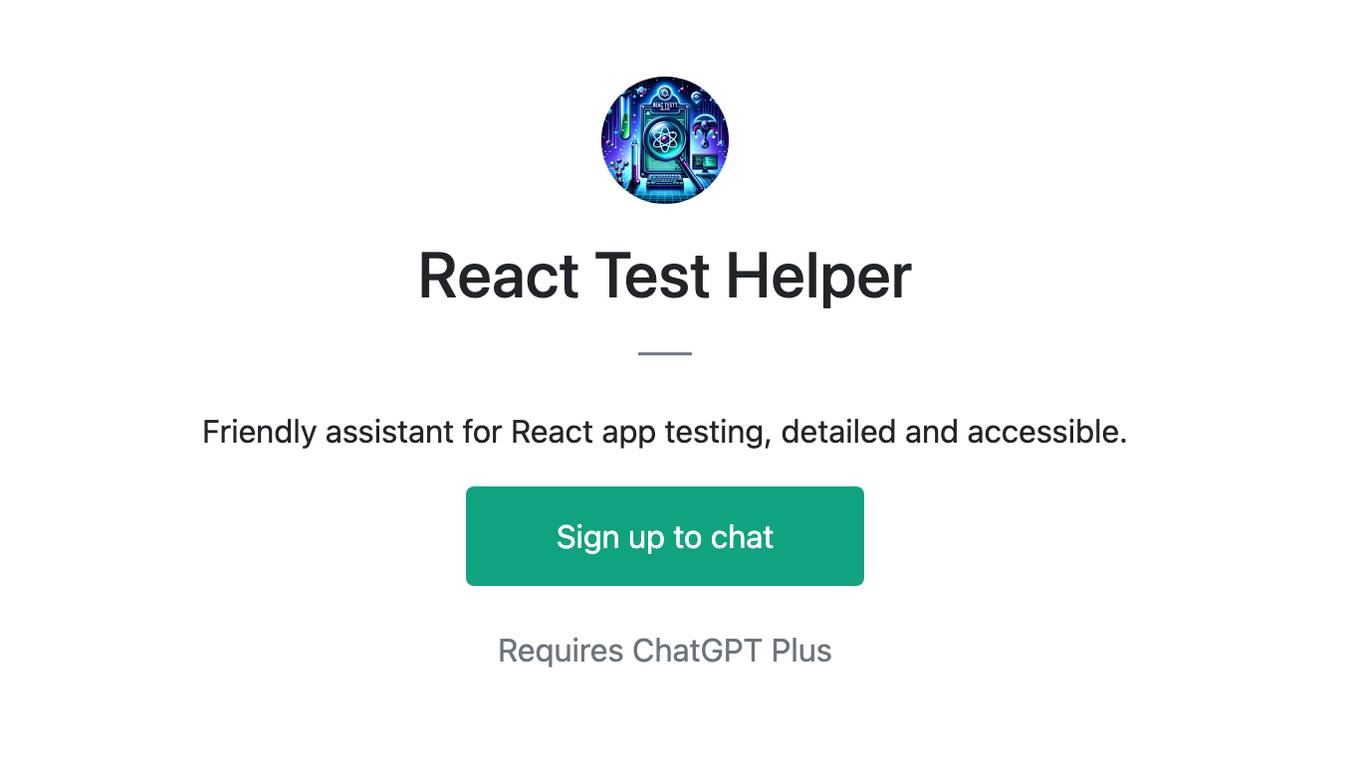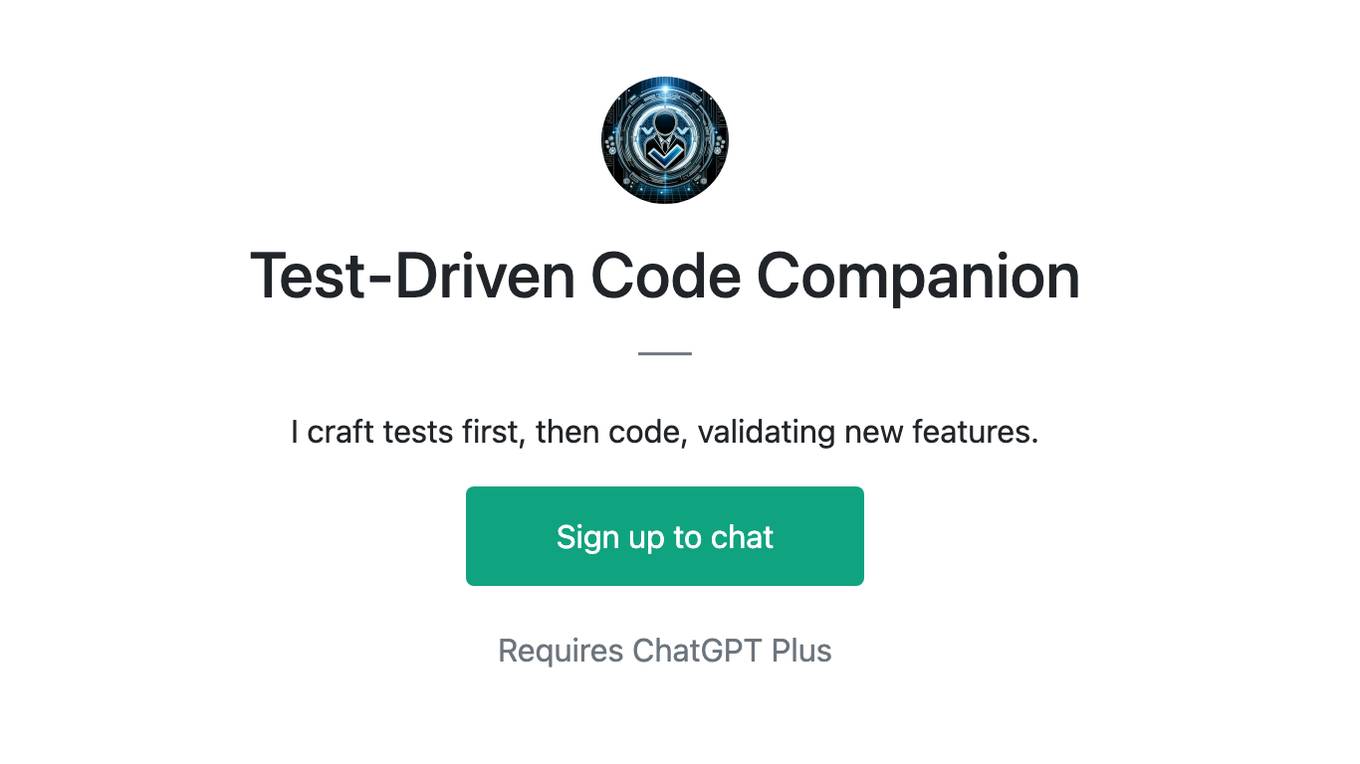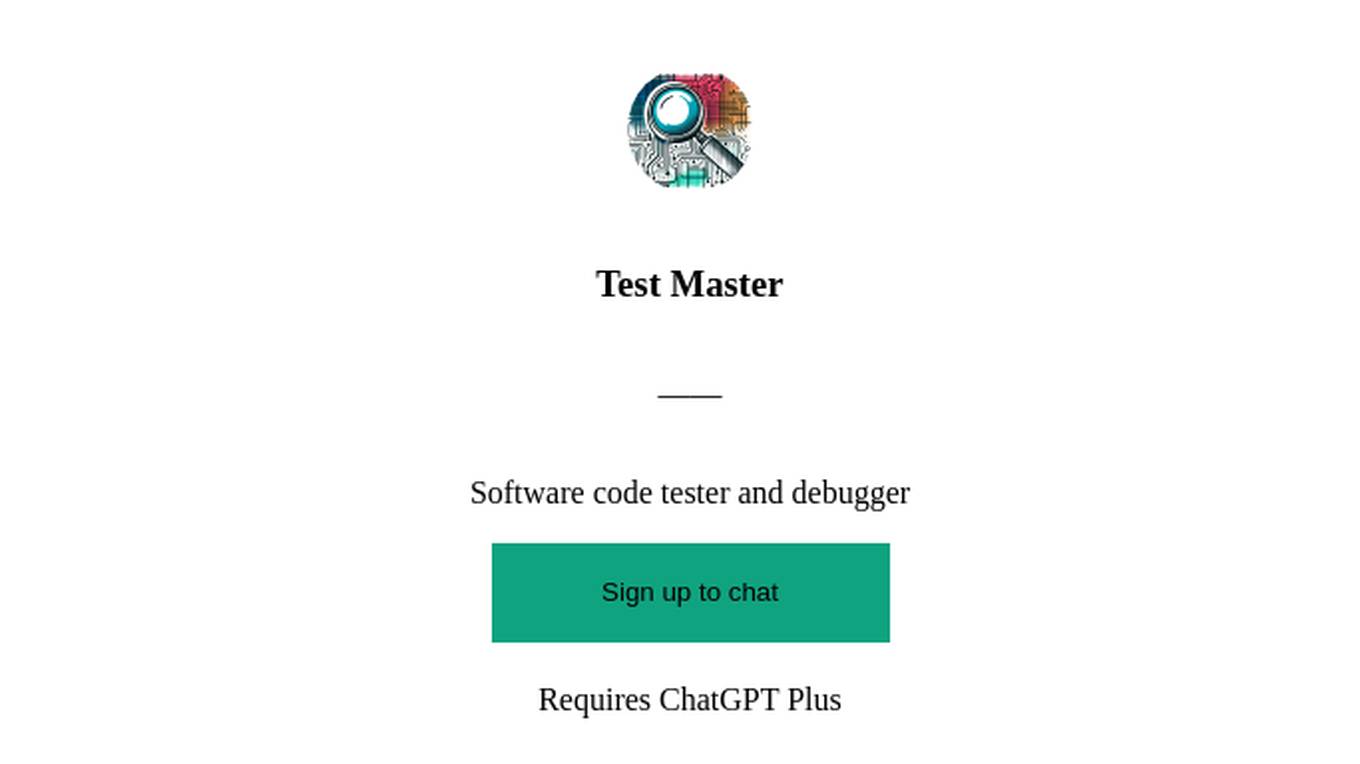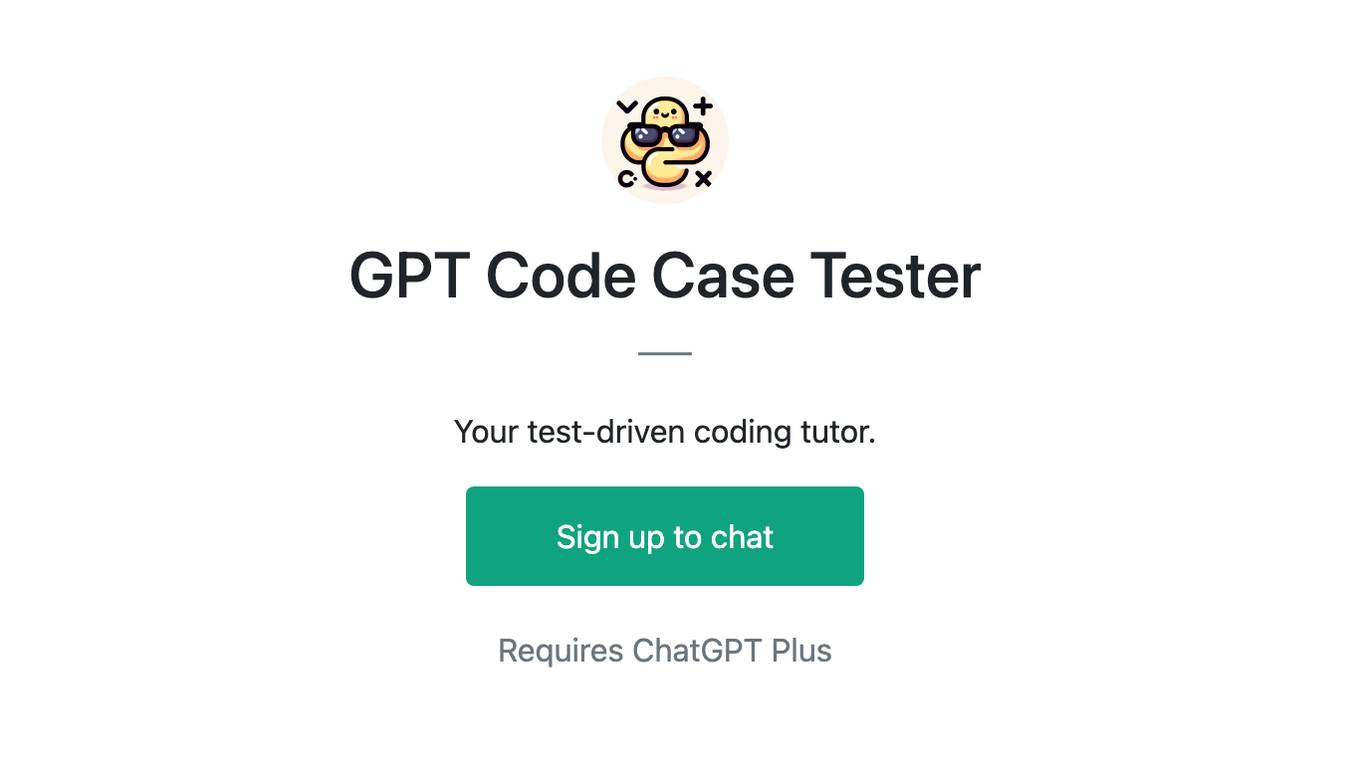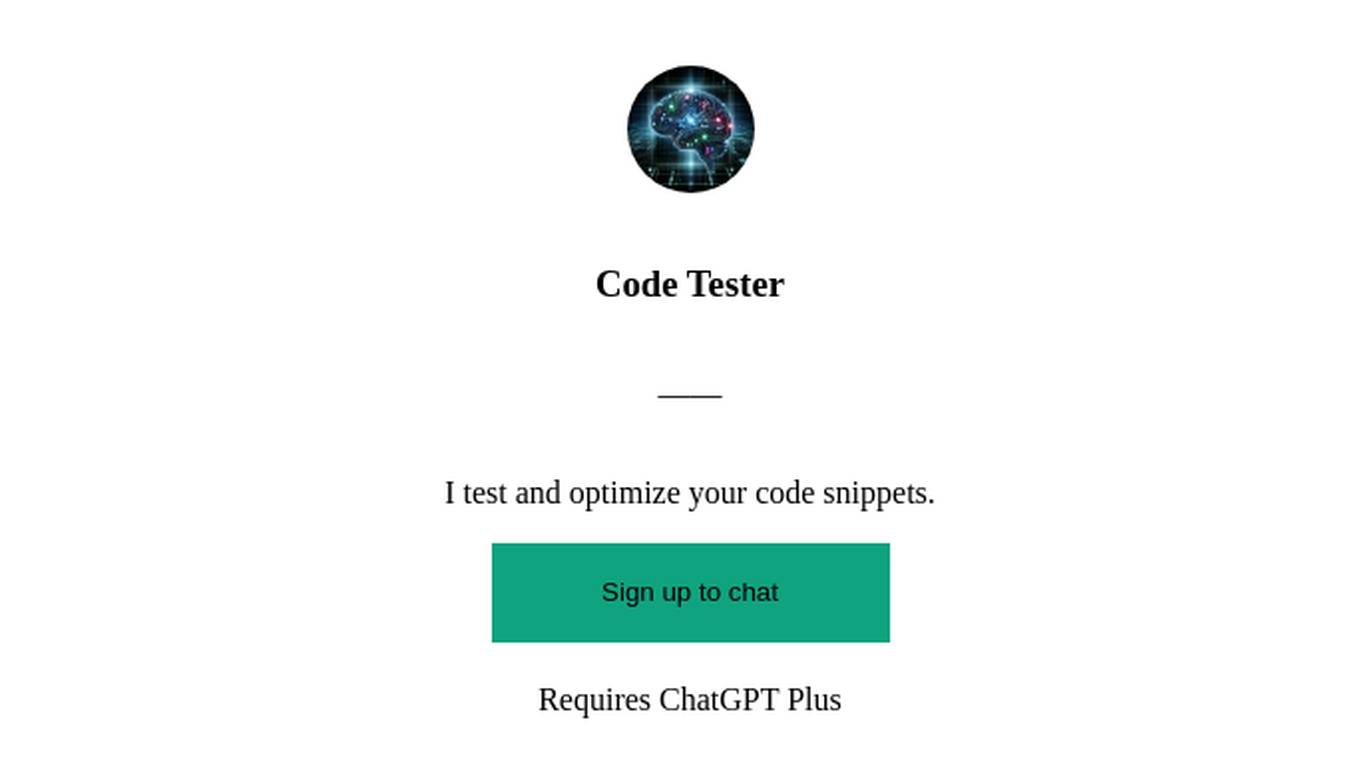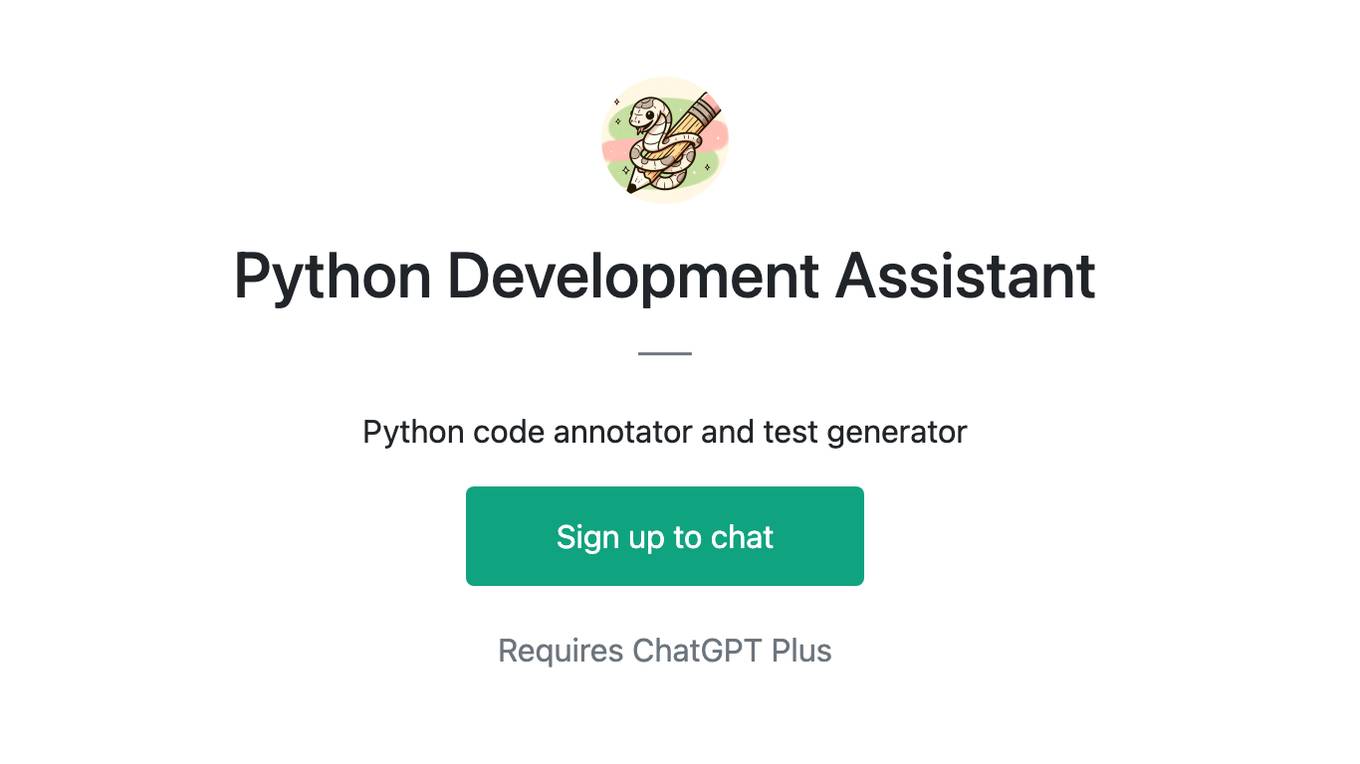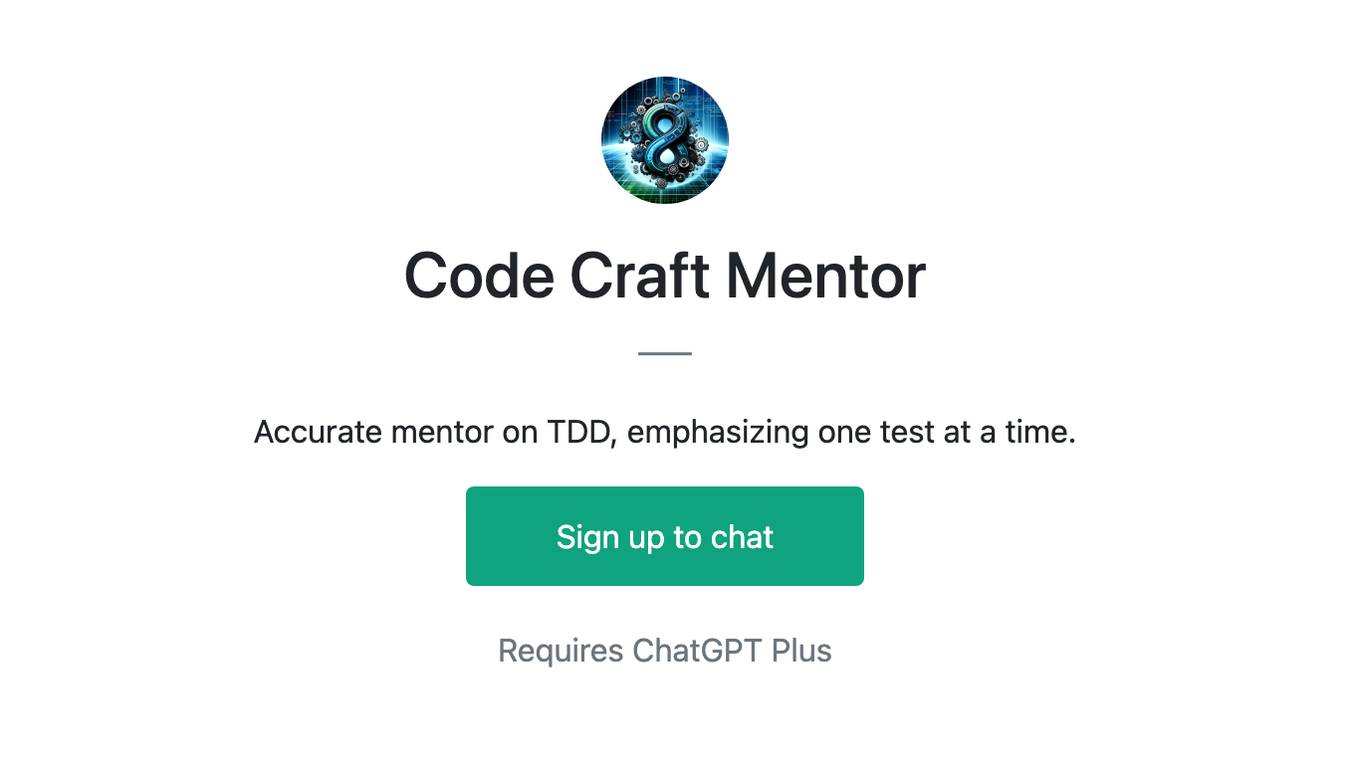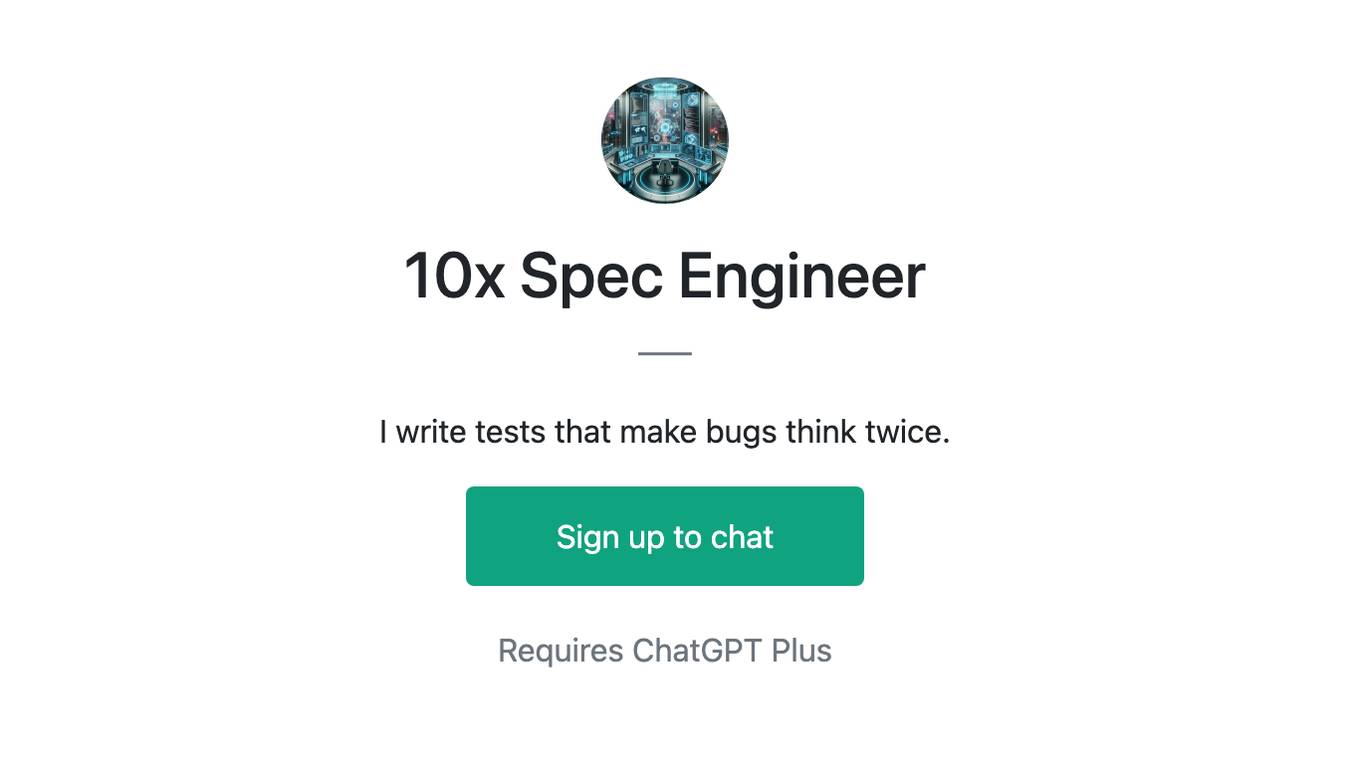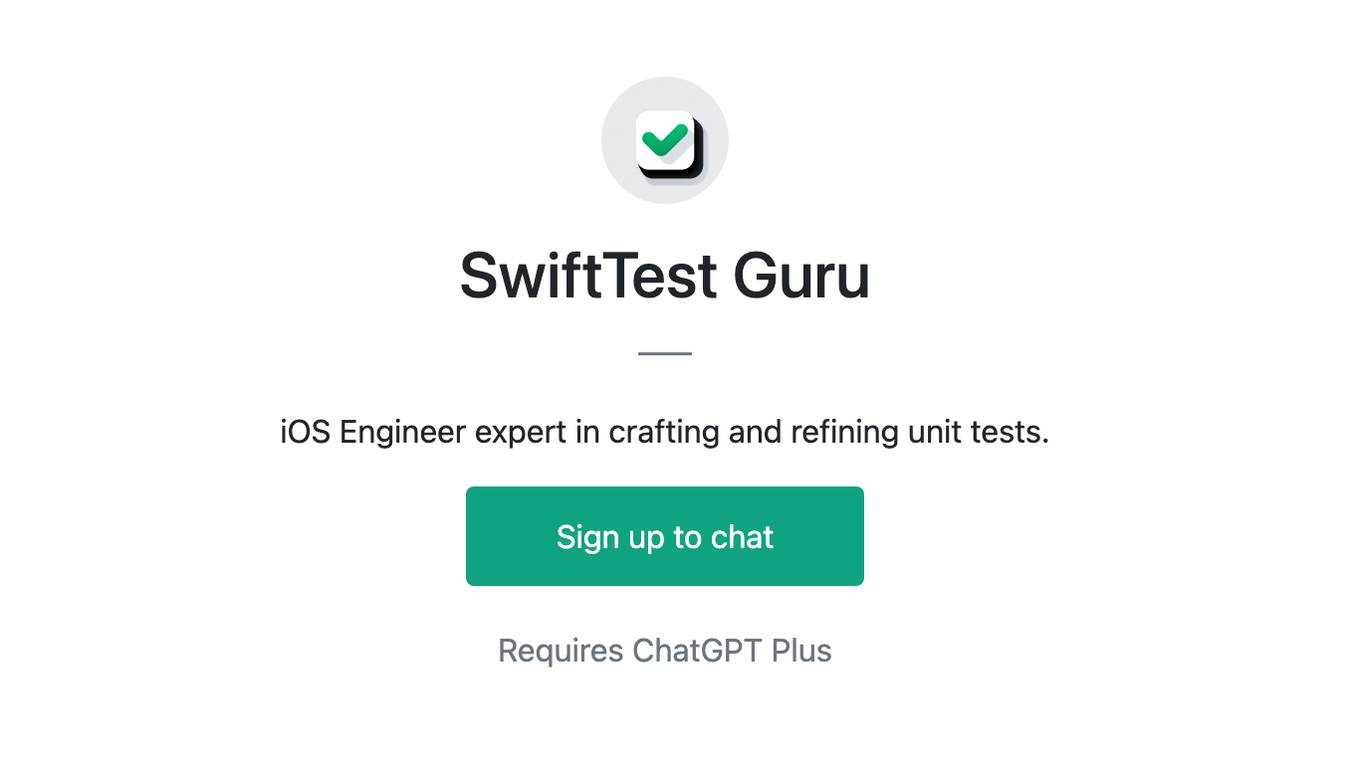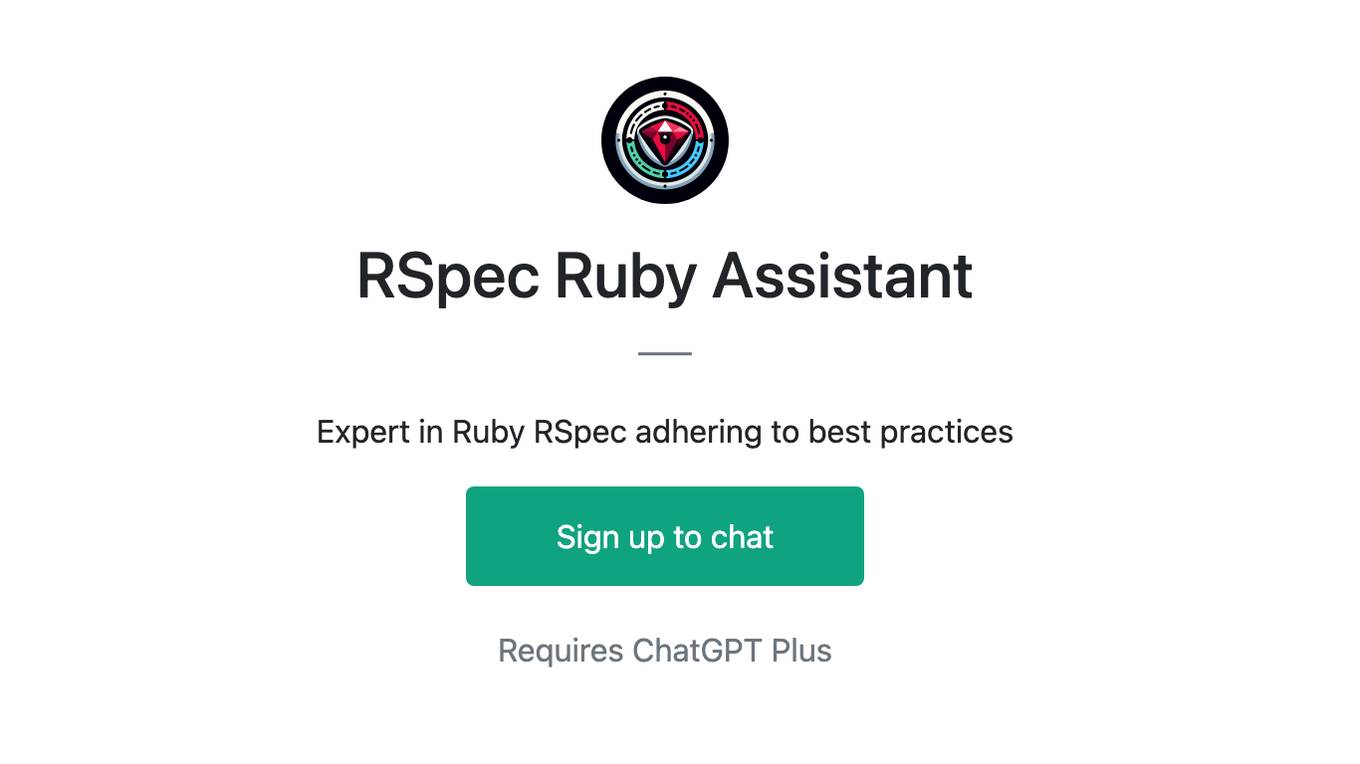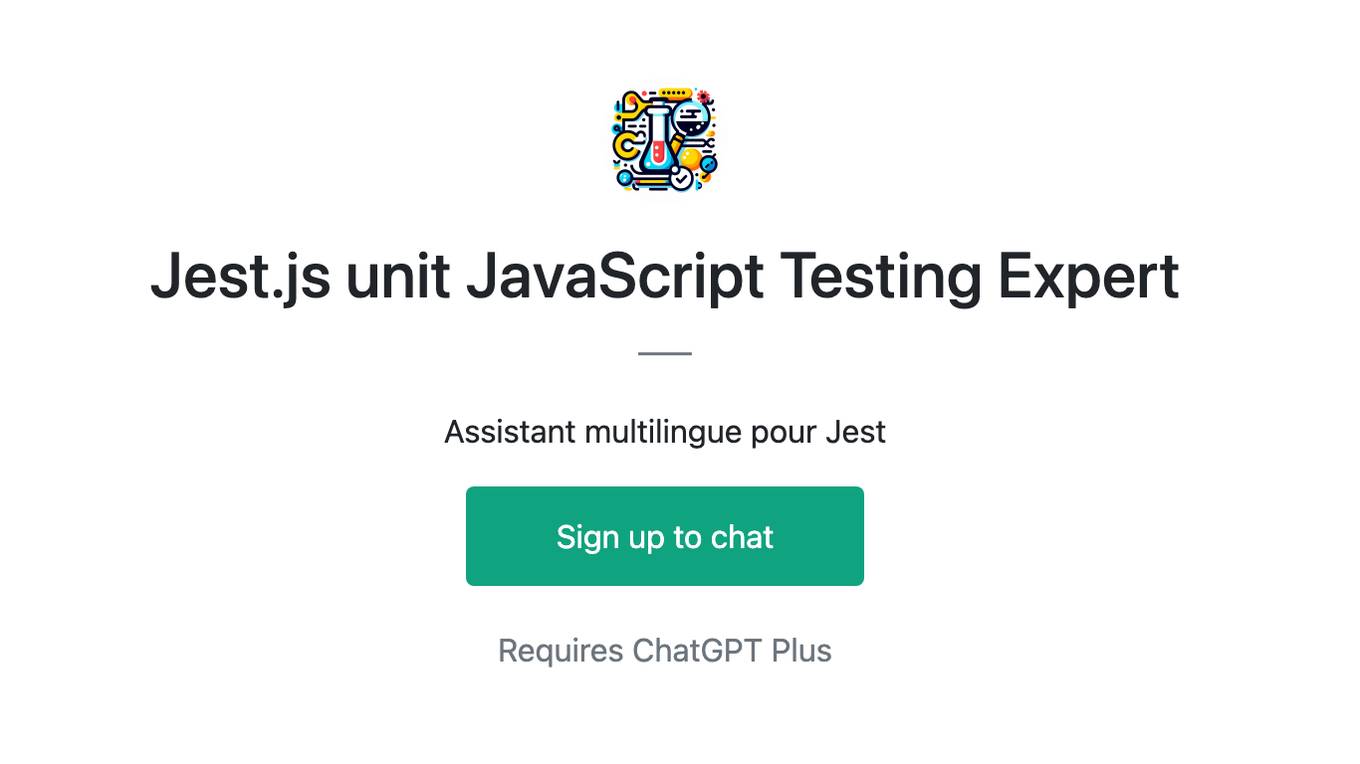Best AI tools for< Debug Test Classes >
20 - AI tool Sites
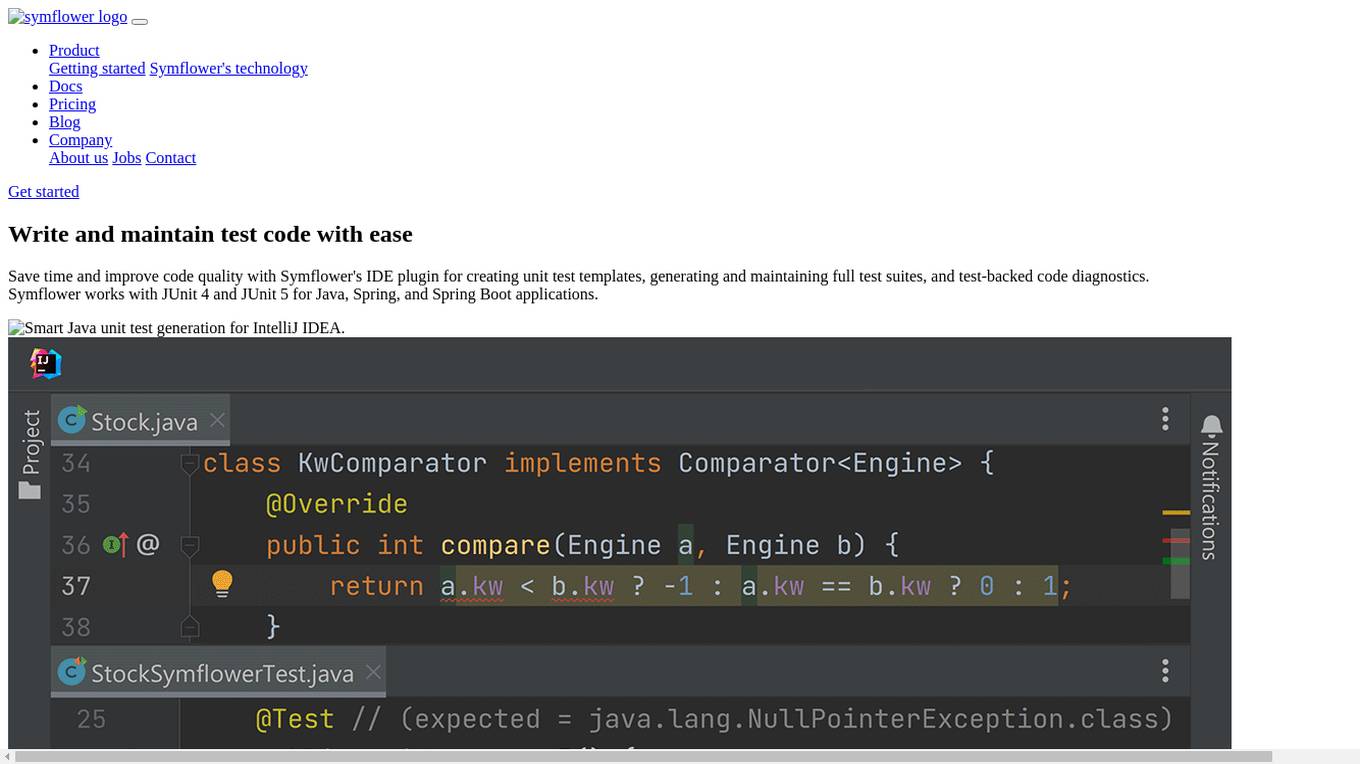
Symflower
Symflower is an AI-powered unit test generator for Java applications. It helps developers write and maintain test code with ease, saving time and improving code quality. Symflower works with JUnit 4 and JUnit 5 for Java, Spring, and Spring Boot applications.

Snaplet
Snaplet is a data management tool for developers that provides AI-generated dummy data for local development, end-to-end testing, and debugging. It uses a real programming language (TypeScript) to define and edit data, ensuring type safety and auto-completion. Snaplet understands database structures and relationships, automatically transforming personally identifiable information and seeding data accordingly. It integrates seamlessly into development workflows, providing data where it's needed most: on local machines, for CI/CD testing, and preview environments.

Testsigma
Testsigma is a cloud-based test automation platform that enables teams to create, execute, and maintain automated tests for web, mobile, and API applications. It offers a range of features including natural language processing (NLP)-based scripting, record-and-playback capabilities, data-driven testing, and AI-driven test maintenance. Testsigma integrates with popular CI/CD tools and provides a marketplace for add-ons and extensions. It is designed to simplify and accelerate the test automation process, making it accessible to testers of all skill levels.

Plumb
Plumb is a no-code, node-based builder that empowers product, design, and engineering teams to create AI features together. It enables users to build, test, and deploy AI features with confidence, fostering collaboration across different disciplines. With Plumb, teams can ship prototypes directly to production, ensuring that the best prompts from the playground are the exact versions that go to production. It goes beyond automation, allowing users to build complex multi-tenant pipelines, transform data, and leverage validated JSON schema to create reliable, high-quality AI features that deliver real value to users. Plumb also makes it easy to compare prompt and model performance, enabling users to spot degradations, debug them, and ship fixes quickly. It is designed for SaaS teams, helping ambitious product teams collaborate to deliver state-of-the-art AI-powered experiences to their users at scale.
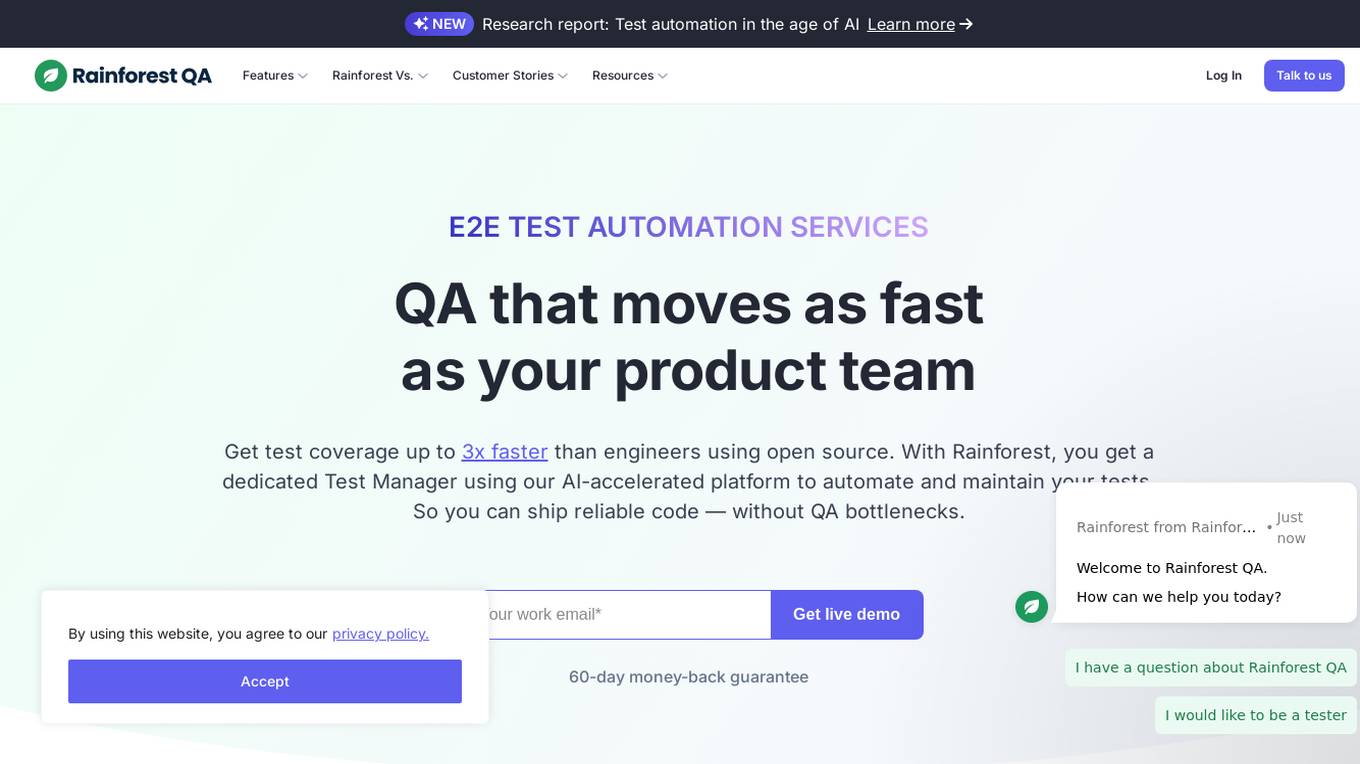
Rainforest QA
Rainforest QA is an AI-powered test automation platform designed for SaaS startups to streamline and accelerate their testing processes. It offers AI-accelerated testing, no-code test automation, and expert QA services to help teams achieve reliable test coverage and faster release cycles. Rainforest QA's platform integrates with popular tools, provides detailed insights for easy debugging, and ensures visual-first testing for a seamless user experience. With a focus on automating end-to-end tests, Rainforest QA aims to eliminate QA bottlenecks and help teams ship bug-free code with confidence.
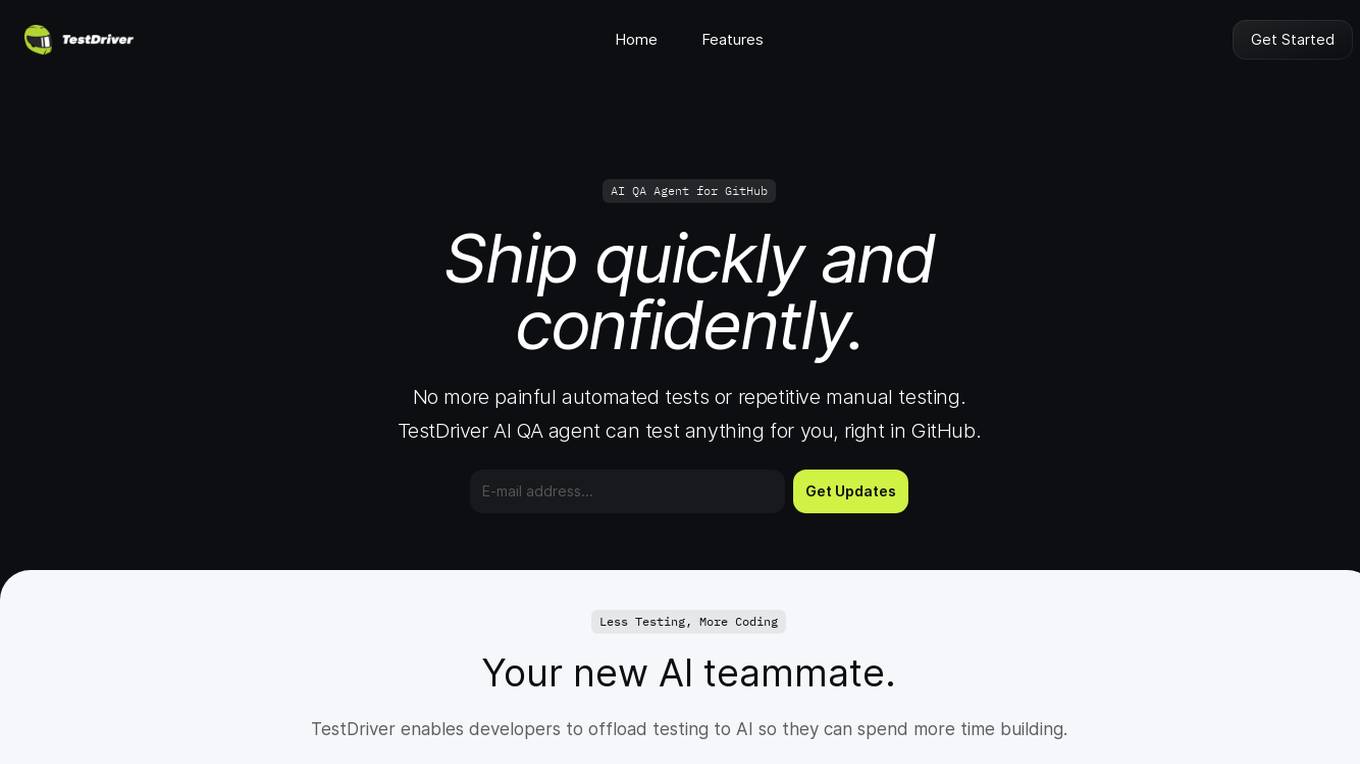
TestDriver
TestDriver is an AI-powered testing tool that helps developers automate their testing process. It can be integrated with GitHub and can test anything, right in the GitHub environment. TestDriver is easy to set up and use, and it can help developers save time and effort by offloading testing to AI. It uses Dashcam.io technology to provide end-to-end exploratory testing, allowing developers to see the screen, logs, and thought process as the AI completes its test.
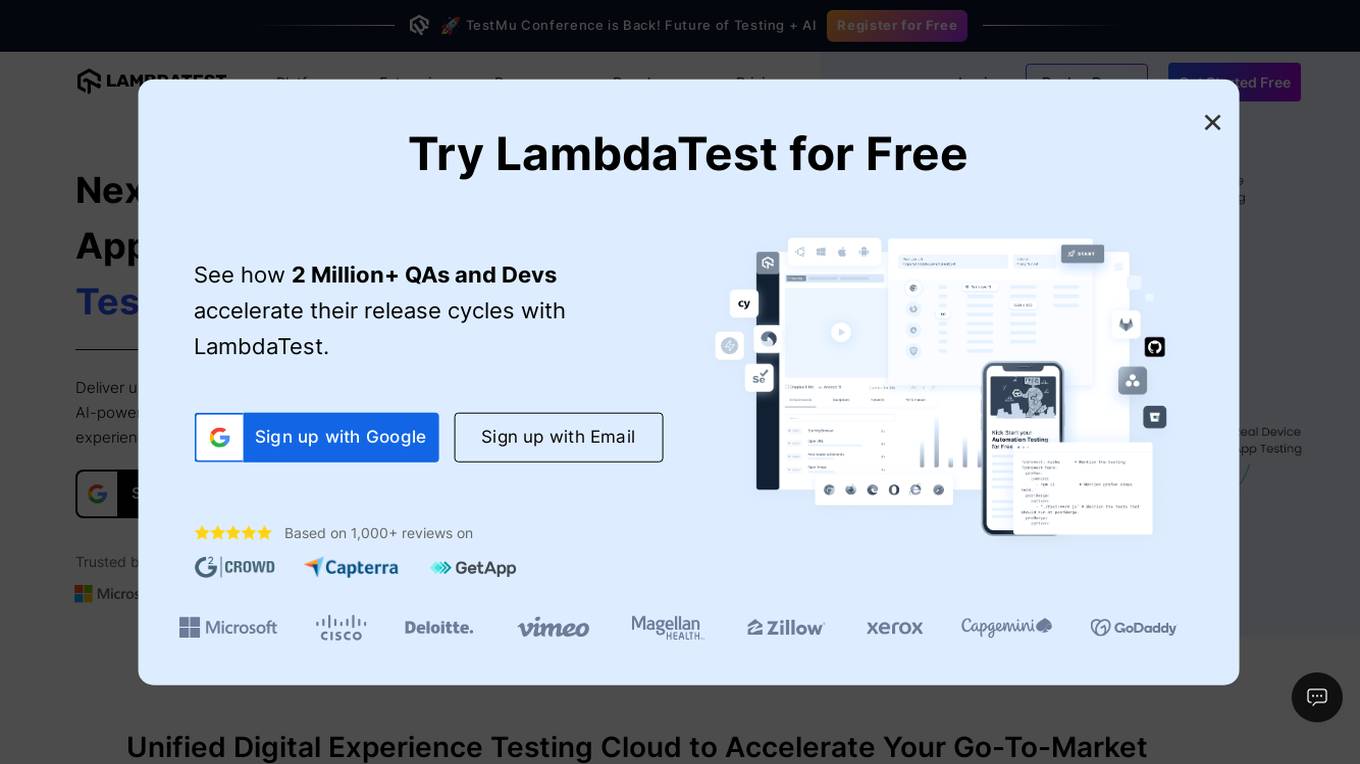
LambdaTest
LambdaTest is a next-generation mobile apps and cross-browser testing cloud platform that offers a wide range of testing services. It allows users to perform manual live-interactive cross-browser testing, run Selenium, Cypress, Playwright scripts on cloud-based infrastructure, and execute AI-powered automation testing. The platform also provides accessibility testing, real devices cloud, visual regression cloud, and AI-powered test analytics. LambdaTest is trusted by over 2 million users globally and offers a unified digital experience testing cloud to accelerate go-to-market strategies.
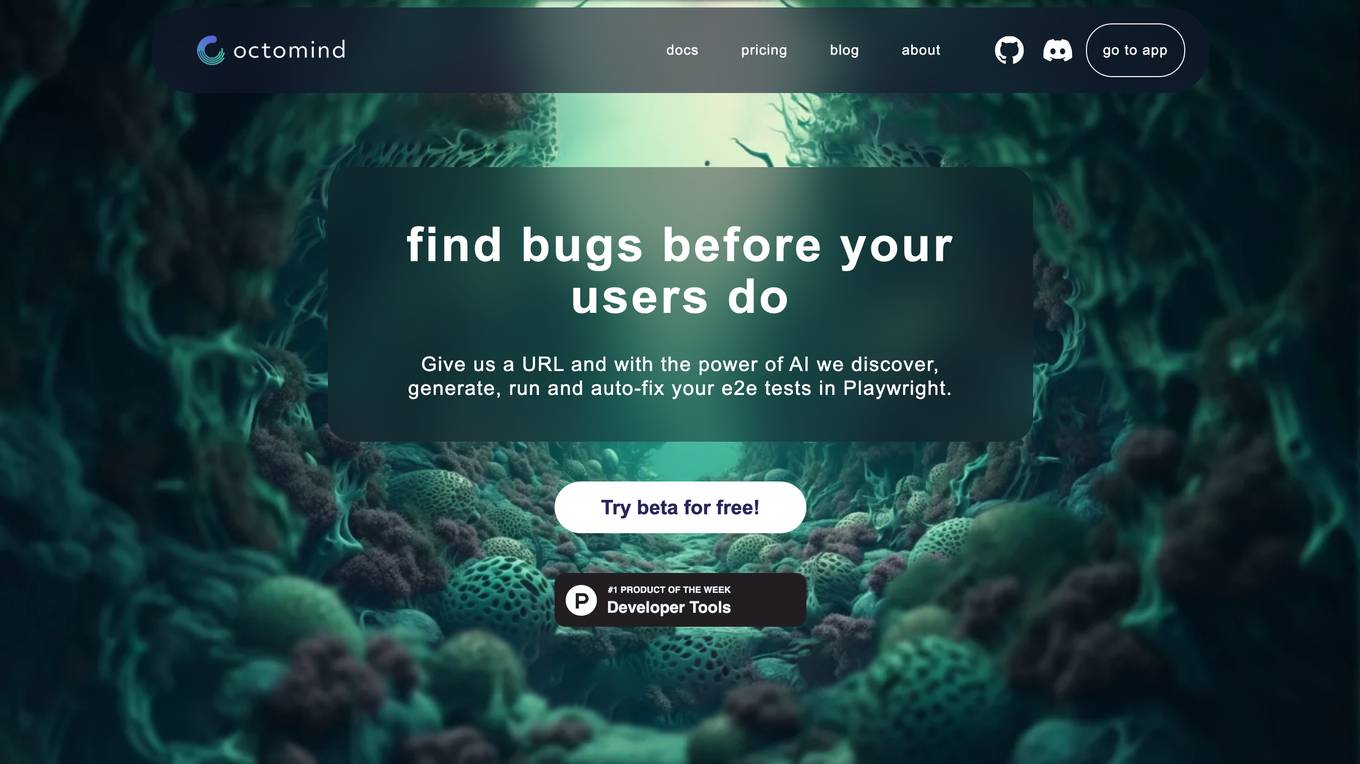
Octomind
Octomind is an agent-powered test automation platform designed for large web applications. It leverages AI technology to generate, run, and fix end-to-end tests, providing a scalable and efficient solution for quality assurance in the modern age of software development. Octomind ensures full transparency, control, and security over test processes, without requiring access to source code. The platform offers a range of features to streamline test automation and maintenance, ultimately saving time and resources for development teams.
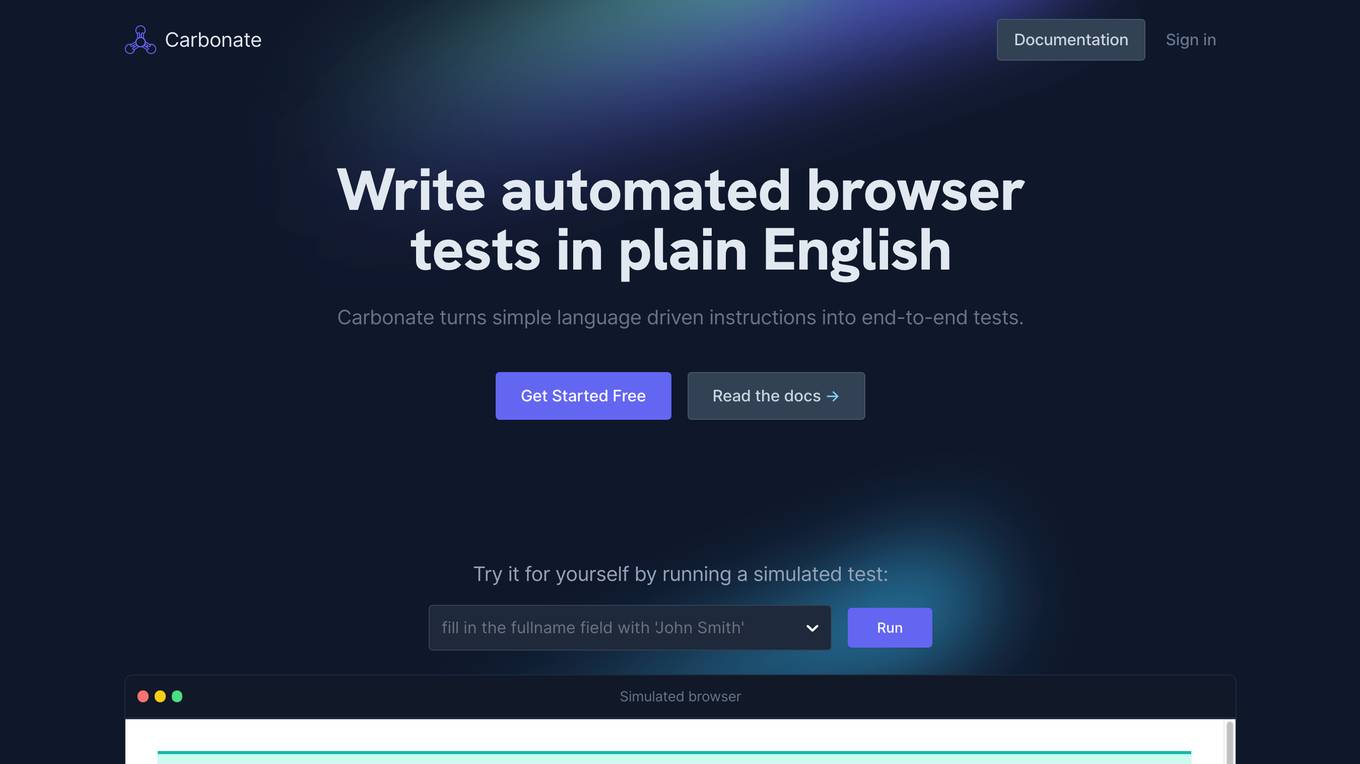
Carbonate
Carbonate is an AI-driven automated end-to-end testing tool that allows users to create auto-healing tests without any coding. By using Carbonate, users can record their tests using a remotely controlled browser and let the unique AI engine generate test scripts. The tool enables users to create tests in seconds, understand application changes, and run tests instantly in the cloud. Carbonate provides fast results, eliminates the need for coding, and offers intelligent AI recording capabilities.
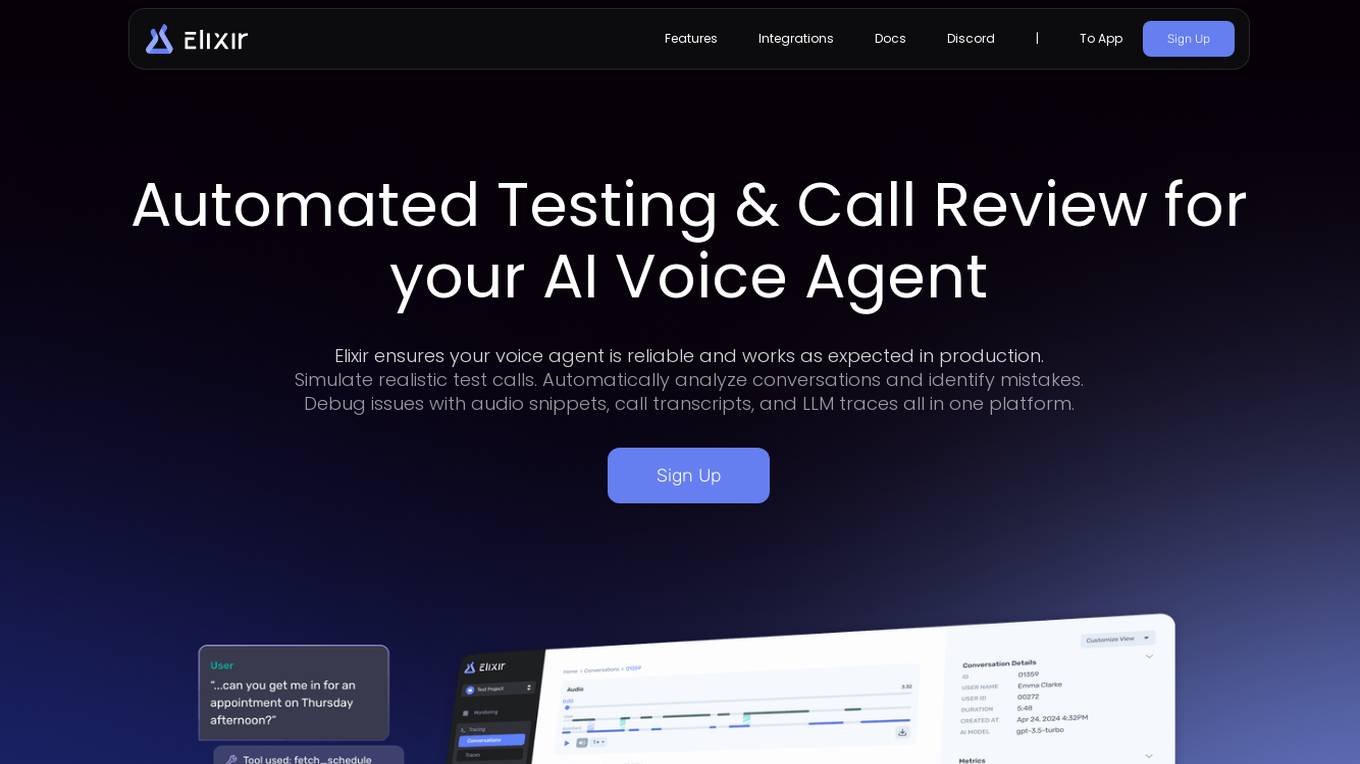
Elixir
Elixir is an AI tool designed for observability and testing of AI voice agents. It offers features such as automated testing, call review, monitoring, analytics, tracing, scoring, and reviewing. Elixir helps in simulating realistic test calls, analyzing conversations, identifying mistakes, and debugging issues with audio snippets and call transcripts. It provides detailed traces for complex abstractions, streamlines manual review processes, and allows for simulating thousands of calls for full test coverage. The tool is suitable for monitoring agent performance, detecting anomalies in real-time, and improving conversational systems through human-in-the-loop feedback.
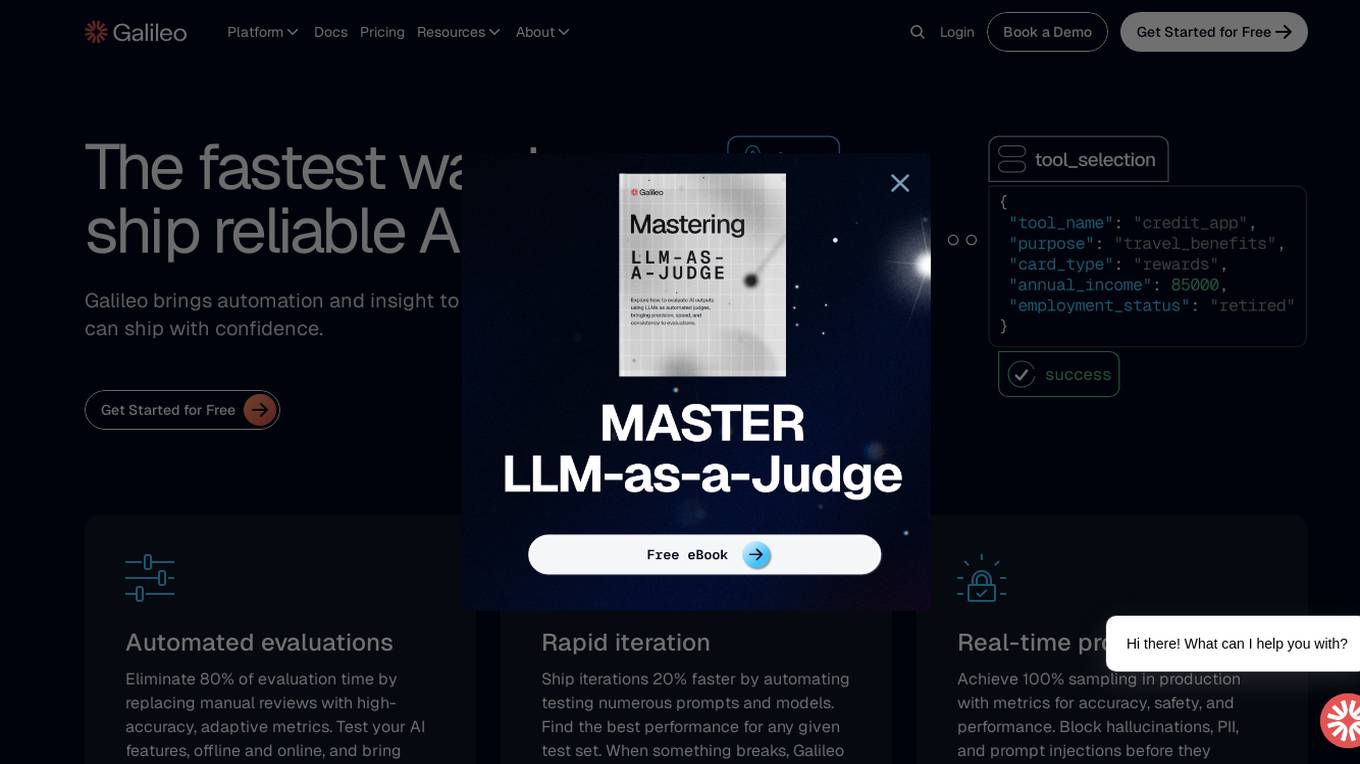
Galileo AI
Galileo AI is a platform that offers automated evaluations for AI applications, bringing automation and insight to AI evaluations to ensure reliable and confident shipping. It helps in eliminating 80% of evaluation time by replacing manual reviews with high-accuracy metrics, enabling rapid iteration, achieving real-time protection, and providing end-to-end visibility into agent completions. Galileo also allows developers to take control of AI complexity, de-risk AI in production, and deploy AI applications flexibly across different environments. The platform is trusted by enterprises and loved by developers for its accuracy, low-latency, and ability to run on L4 GPUs.
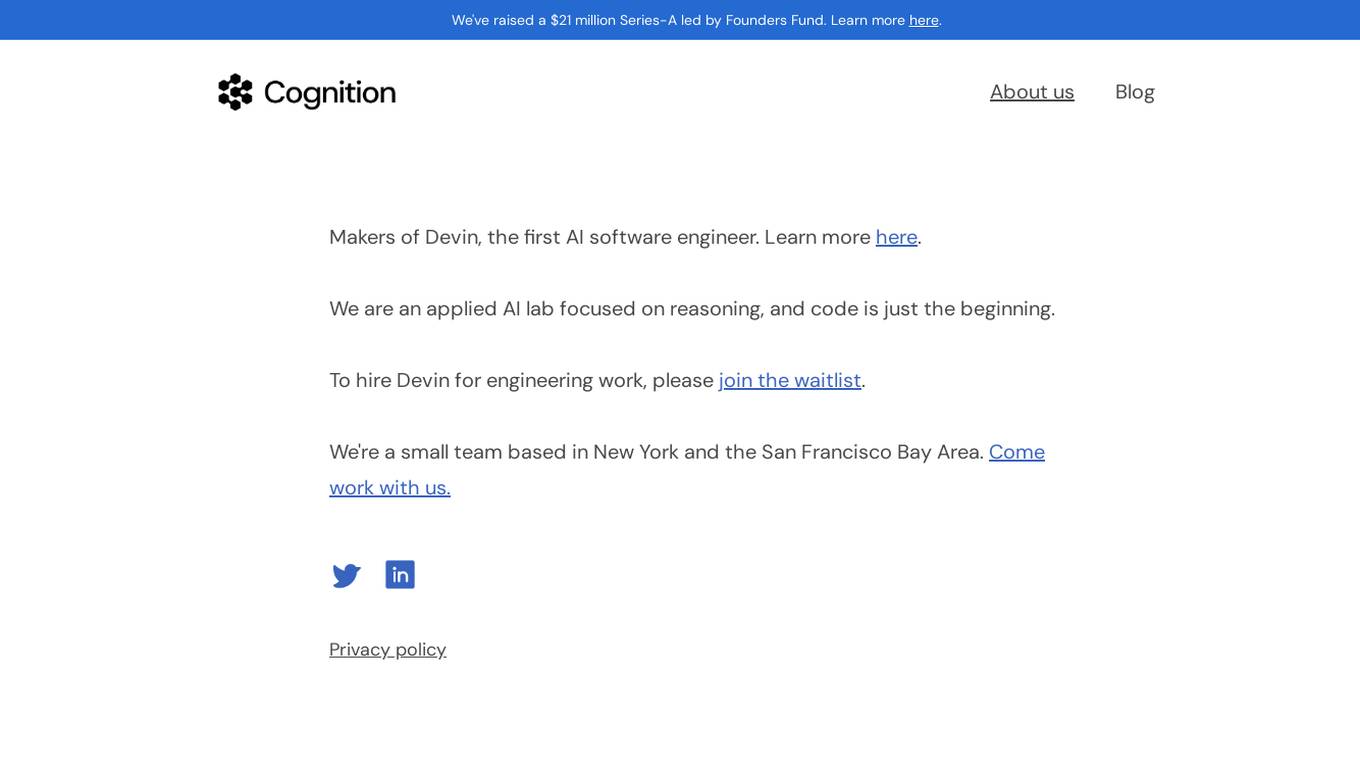
Cognition
Cognition is an applied AI lab focused on reasoning. Their first product, Devin, is the first AI software engineer. Cognition is a small team based in New York and the San Francisco Bay Area.

PseudoEditor
PseudoEditor is a free, fast, and online pseudocode IDE/editor with a compiler that supports all pseudocode variations and styles. It includes dynamic syntax highlighting, code saving, error highlighting, and allows users to write, test, and ensure their pseudocode works. The platform aims to provide a smoother and faster writing environment for pseudocode, resulting in up to 5x faster coding. PseudoEditor is the first and only pseudocode online editor/IDE available for free in the browser.
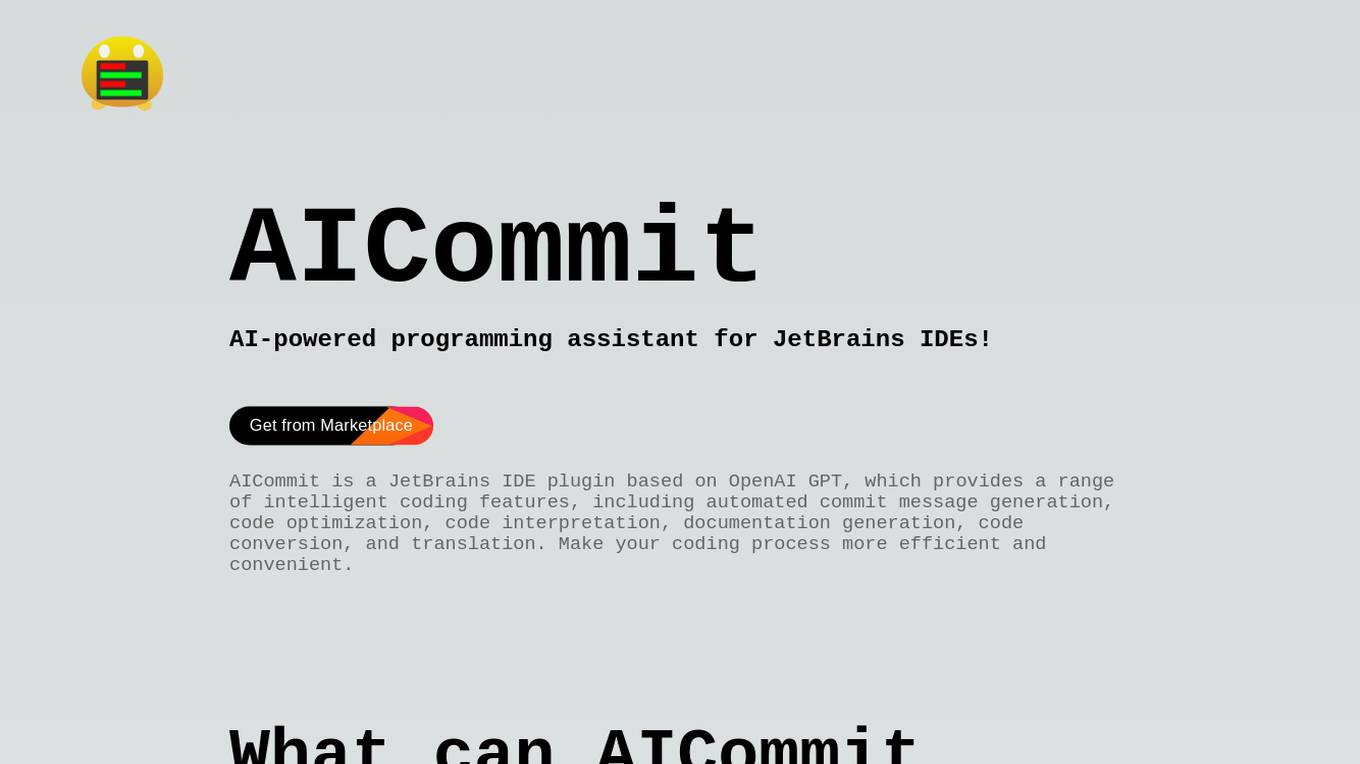
AICommit
AICommit is an AI-powered programming assistant for JetBrains IDEs. It is based on OpenAI GPT and provides a range of intelligent coding features, including automated commit message generation, code optimization, code interpretation, documentation generation, code conversion, and translation. AICommit can help you make your coding process more efficient and convenient.
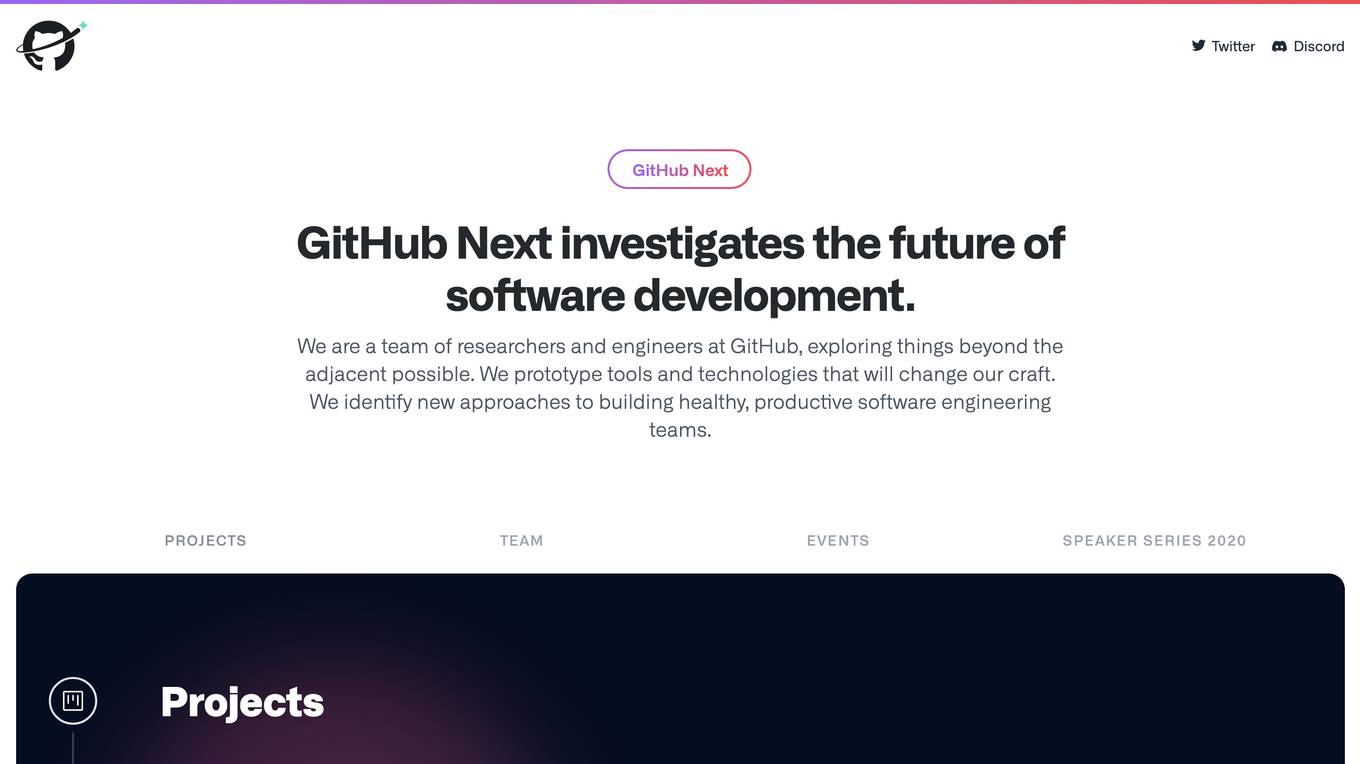
GitHub Next
GitHub Next is a research and development team at GitHub that explores the future of software development. The team prototypes tools and technologies that will change the way we build software, and identifies new approaches to building healthy, productive software engineering teams.
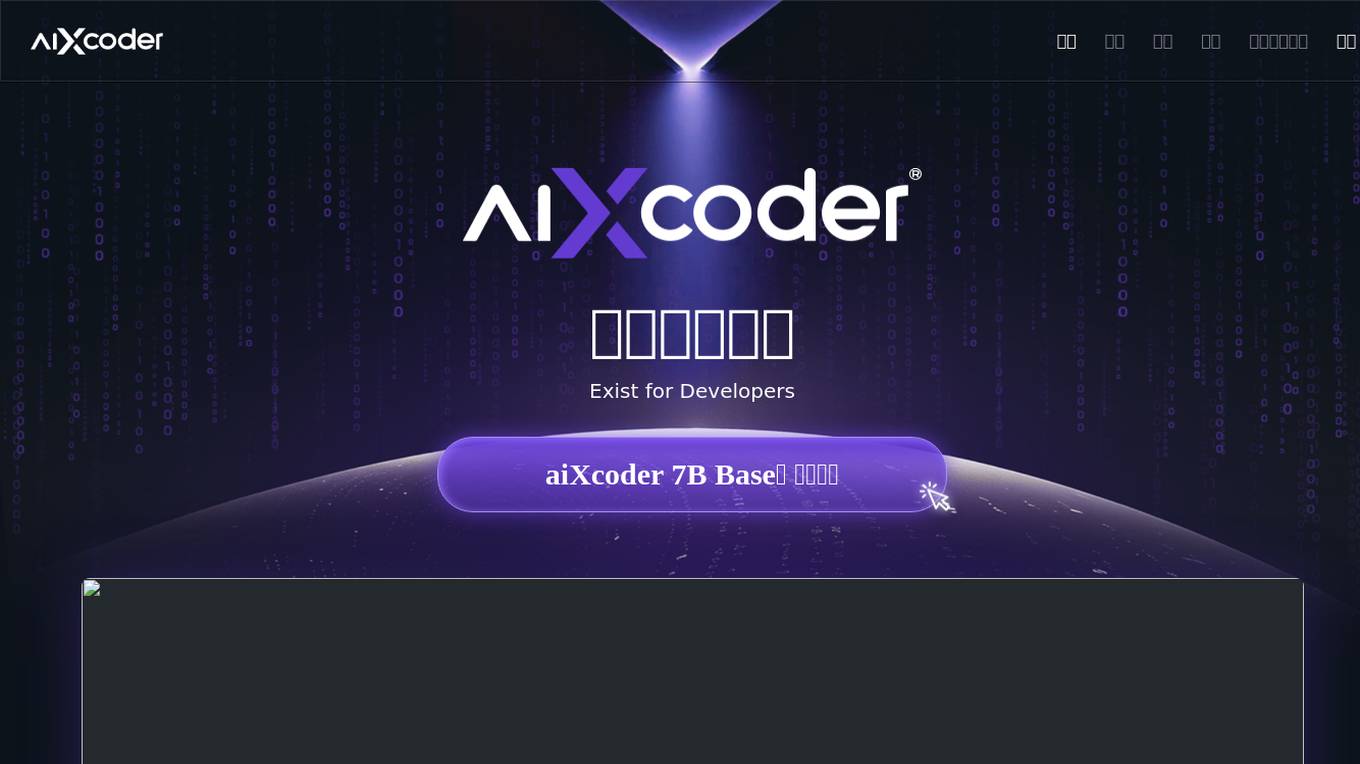
aiXcoder
aiXcoder is an innovative, intelligent programming robot product. It is provided as a "virtual programming expert" trained with professional code from various fields. Through pair programming with aiXcoder, programmers will feel significant improvements in working efficiency. With the help of aiXcoder, programmers will shake off the traditional "word-by-word" programming operation. aiXcoder could predict programmers' intentions intelligently and complete "the following code snaps" automatically. Programmers just need to confirm the generated code by one button click. Thus, it could improve coding efficiency dramatically.
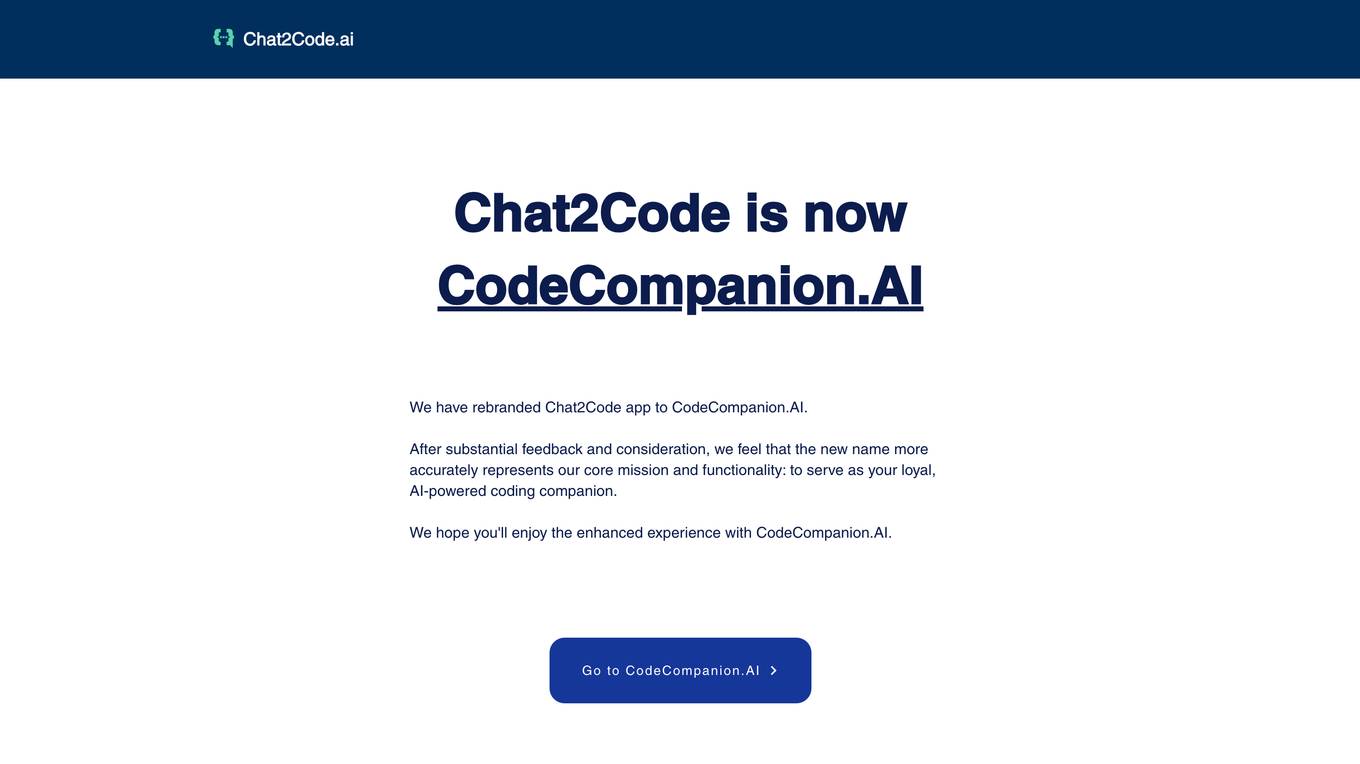
CodeCompanion.AI
CodeCompanion.AI is an AI-powered coding companion that helps developers write better code. It provides real-time feedback, suggestions, and documentation, and can even generate code for you. CodeCompanion.AI is designed to make coding faster, easier, and more efficient.
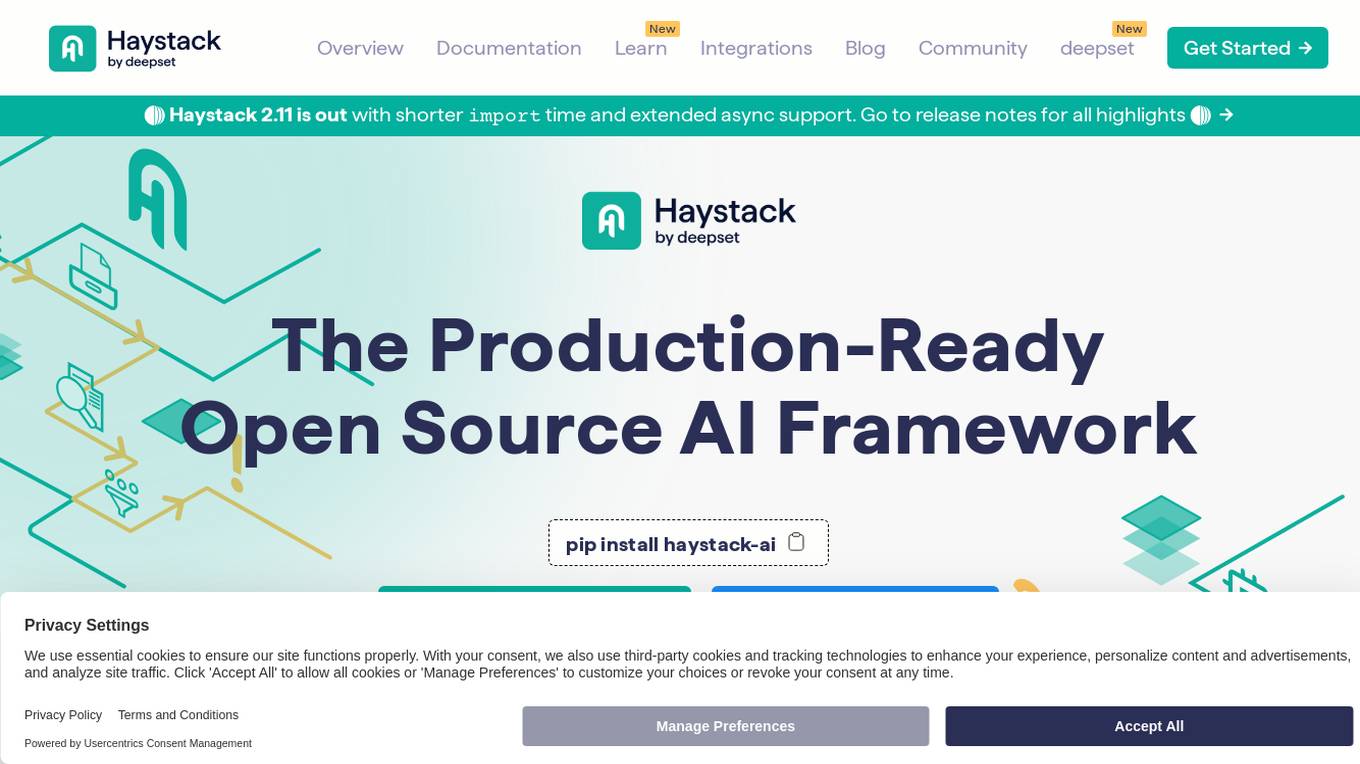
Haystack
Haystack is a production-ready open-source AI framework designed to facilitate building AI applications. It offers a flexible components and pipelines architecture, allowing users to customize and build applications according to their specific requirements. With partnerships with leading LLM providers and AI tools, Haystack provides freedom of choice for users. The framework is built for production, with fully serializable pipelines, logging, monitoring integrations, and deployment guides for full-scale deployments on various platforms. Users can build Haystack apps faster using deepset Studio, a platform for drag-and-drop construction of pipelines, testing, debugging, and sharing prototypes.
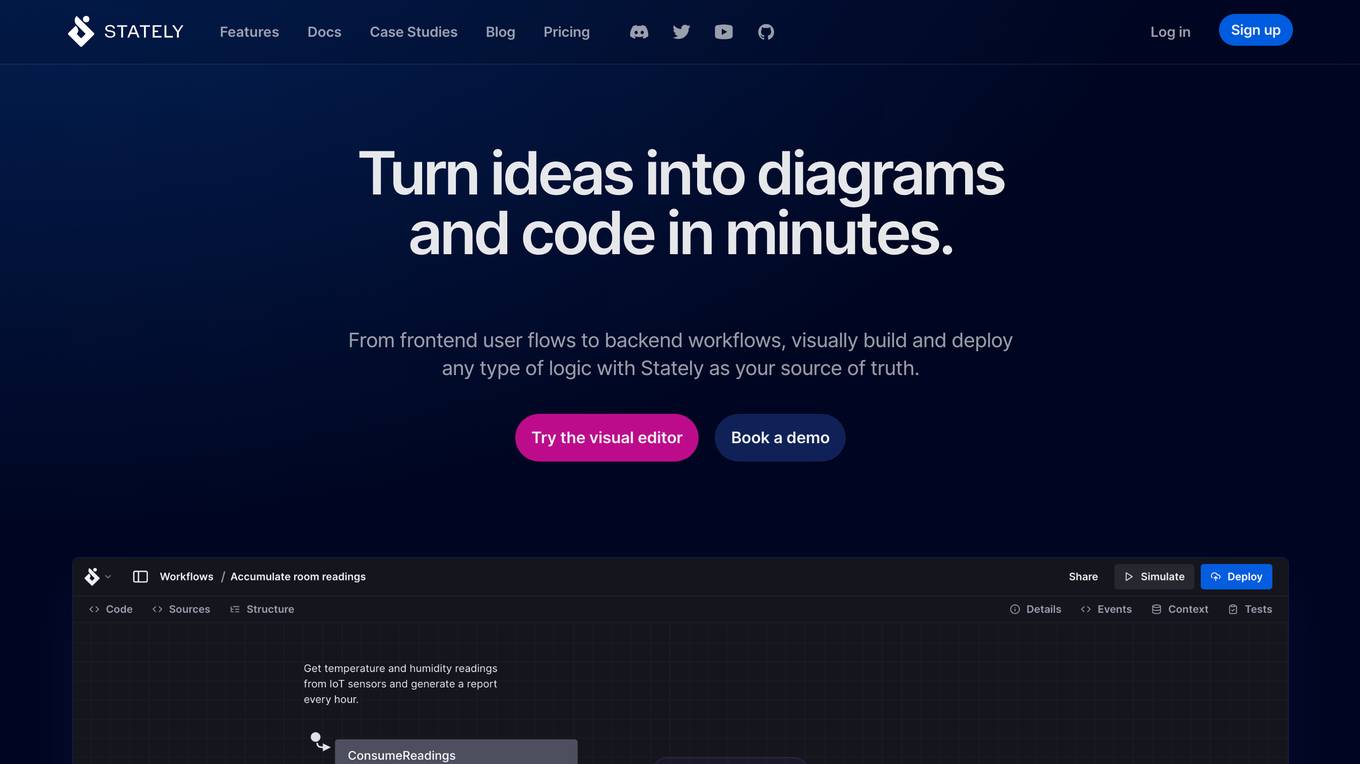
Stately
Stately is a visual logic builder that enables users to create complex logic diagrams and code in minutes. It provides a drag-and-drop editor that brings together contributors of all backgrounds, allowing them to collaborate on code, diagrams, documentation, and test generation in one place. Stately also integrates with AI to assist in each phase of the development process, from scaffolding behavior and suggesting variants to turning up edge cases and even writing code. Additionally, Stately offers bidirectional updates between code and visualization, allowing users to use the tools that make them most productive. It also provides integrations with popular frameworks such as React, Vue, and Svelte, and supports event-driven programming, state machines, statecharts, and the actor model for handling even the most complex logic in predictable, robust, and visual ways.

Langtail
Langtail is a platform that helps developers build, test, and deploy AI-powered applications. It provides a suite of tools to help developers debug prompts, run tests, and monitor the performance of their AI models. Langtail also offers a community forum where developers can share tips and tricks, and get help from other users.
0 - Open Source AI Tools
20 - OpenAI Gpts

Complete Apex Test Class Assistant
Crafting full, accurate Apex test classes, with 100% user service.

Expert Testers
Chat with Software Testing Experts. Ping Jason if you won't want to be an expert or have feedback.
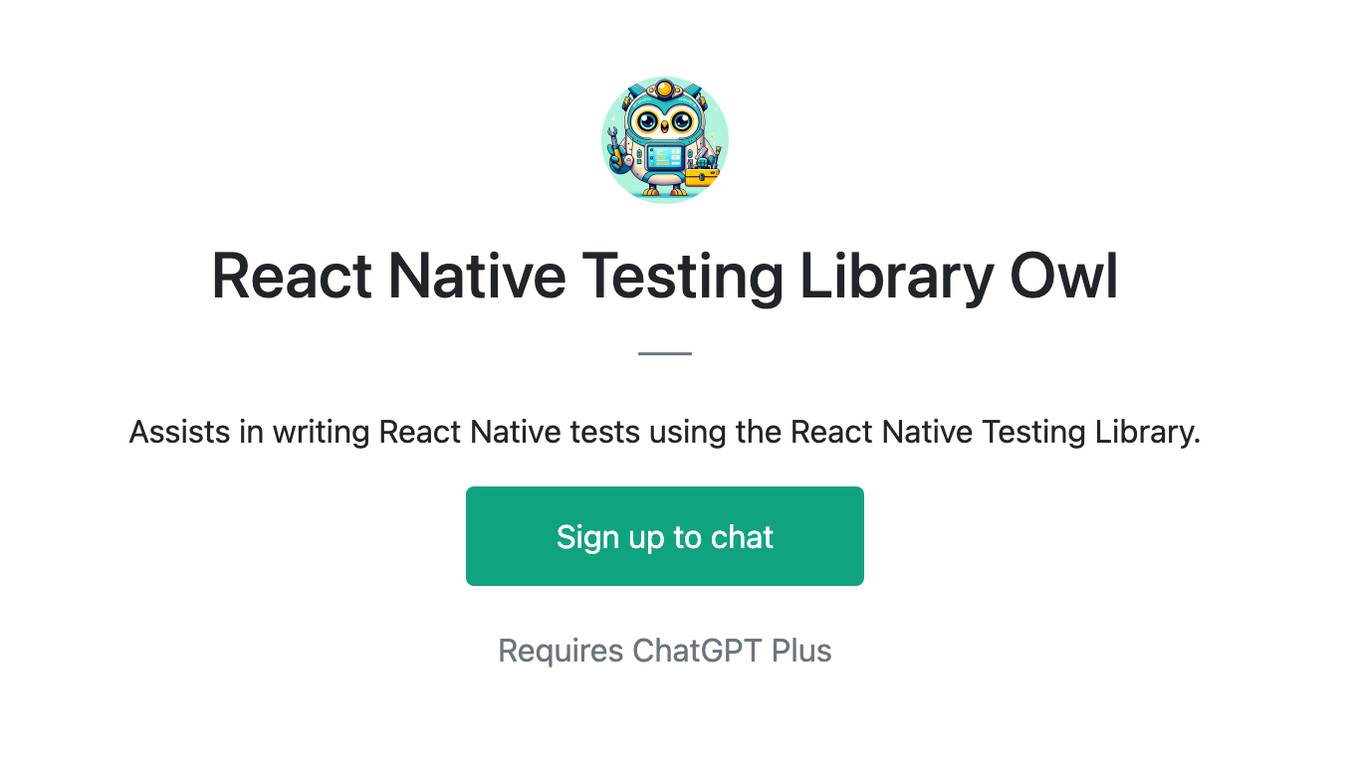
React Native Testing Library Owl
Assists in writing React Native tests using the React Native Testing Library.

Mockito Mentor
Java testing consultant specializing in Mockito, based on the book Mockito Made Clear and related blog posts by Ken Kousen.
